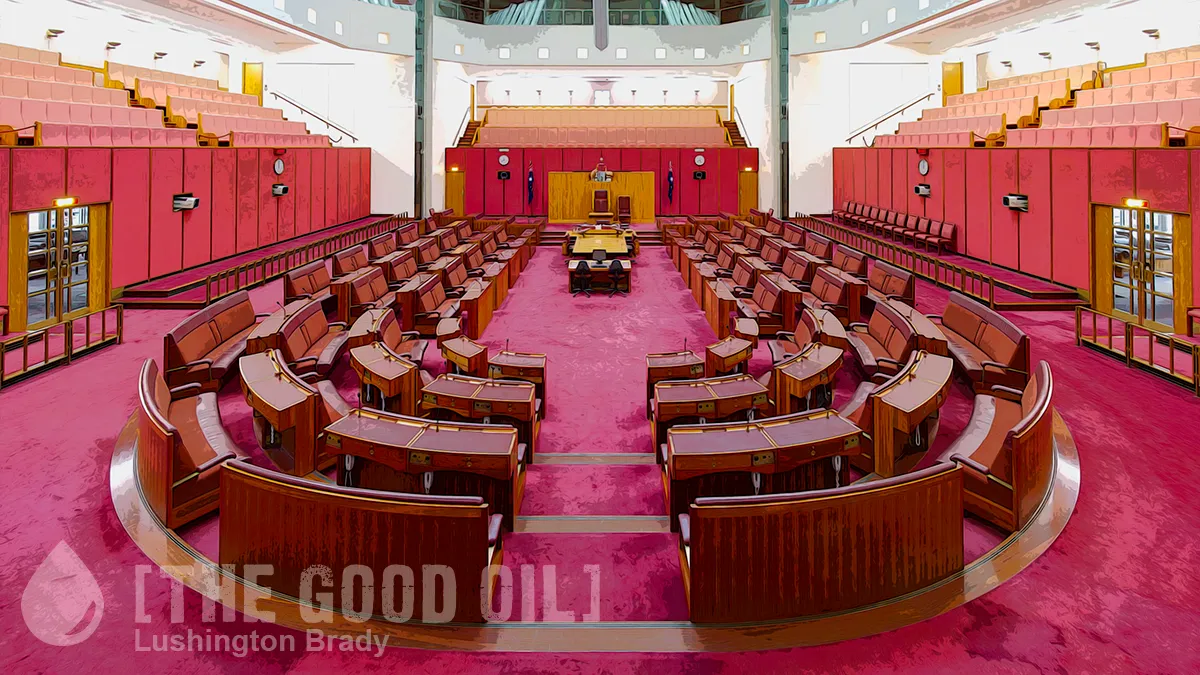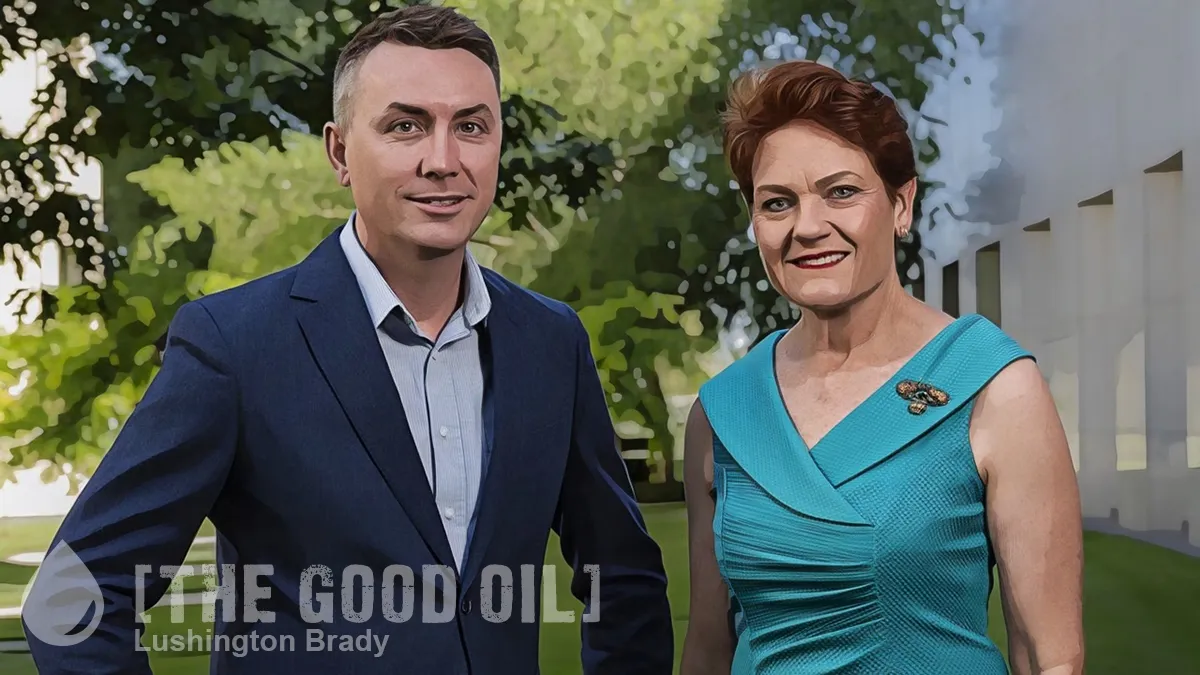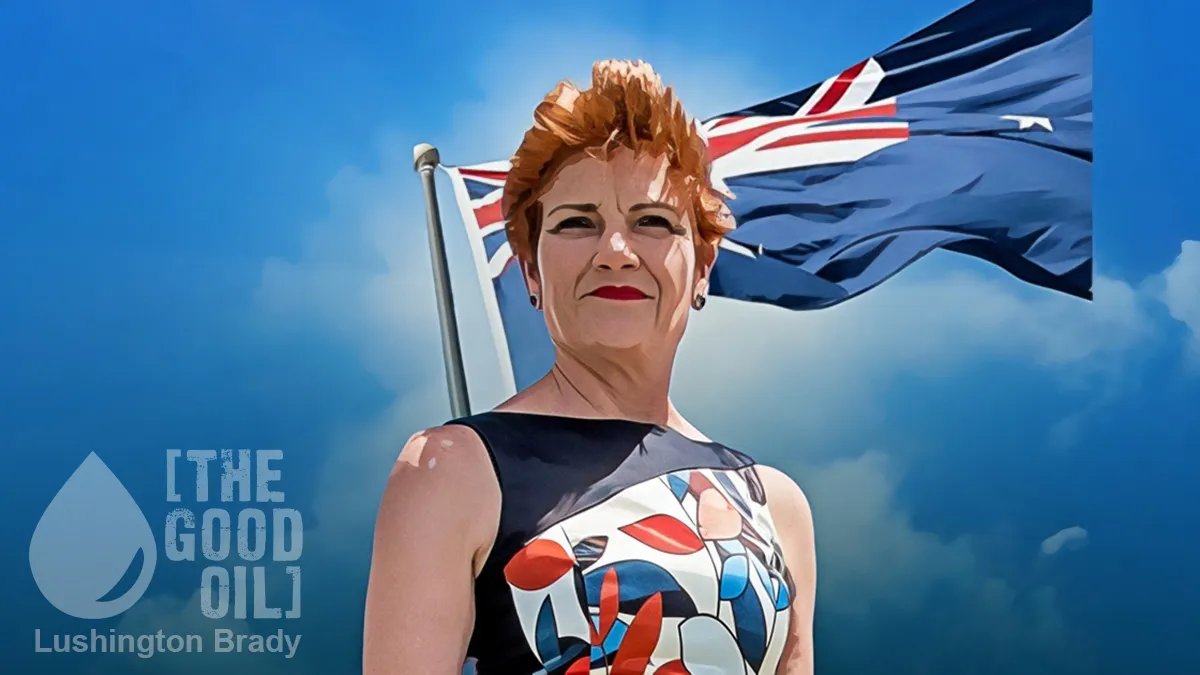Table of Contents
The good news is that the Albanese government’s online censorship bill is set to be defeated in the Australian upper house. Key cross-bench senators from across the political spectrum are indicating they will vote down the bill. If they hold true, Australians will have dodged the bullet of what one of Australia’s most prominent media lawyers called, ‘the worst piece of legislation for free speech’ he’s seen in a 30-year career.
If it was brought out on April Fools, April 1st, we’d all say it was an April Fool’s joke. It’s that bad – media lawyer Justin Quill.
Nationals MP Keith Pitt describes the bill as Orwellian:
The idea, even the concept that a public servant in a department will determine what a fact is and whether someone can have that opinion and whether they can have that reasonable belief is a yawning chasm – it is incredibly dangerous to this country.
It’s truly fascinating, though, to observe the left-wing Sydney Morning Herald’s obvious fervour for the censorship bill.
Key senators are blockading a divisive government plan to crack down on lies in major public debates, threatening to vote down the bill and adding to a logjam of more than 20 bills stalled in the Senate […]
The misinformation regime aims to give federal authorities the power to force tech giants to act on alerts about damaging falsehoods and stop them spreading before they cause serious harm, citing cases such as the misidentification of the Bondi Junction knife attacker earlier this year.
That last one is particularly ironic. Because, as it happens, linked on the same page is the very story referred to:
The 20-year-old university student wrongly identified by Seven Network as the Bondi Junction mass murderer has settled his legal dispute with the network for an undisclosed sum.
Benjamin Cohen was identified by Seven’s Sunrise on Sunday, April 14, the morning after six people were murdered in a Sydney shopping centre.
Wrongly identified by Seven Network. Not some rando on social media, not Big Tech: the mainstream media.
The very liars whom the ‘crack down on lies’ bill specifically exempts (along with those legendary truth-tellers, politicians).
That’s what this bill is really about: a government bent on control of public discourse and trying desperately to save its media lickspittles from their self-inflicted demise. PIJF, anyone?
The new warnings put the contentious plan on a path to defeat unless the government convinces at least three independent senators to set aside their concerns about giving a federal agency sweeping power to oversee content safeguards on social media […]
But independent senators including David Pocock, Jacqui Lambie, Tammy Tyrrell, Fatima Payman and Gerard Rennick are holding out against the plan, putting it on course for defeat even if Labor gains support from the Greens.
Senators said they were receiving hundreds of emails and calls from voters who opposed the draft law because they believed the Australian Communications and Media Authority should not have the power to check the controls on social media content.
Labor need to flip three independents (as well as the 11 Greens). Only former Victorian Liberal (of course) David Van indicated possible support, because, ‘it was mainly about the power to direct platforms to take down harmful content’. If he thinks that, then he’s even dumber than we thought.
Communications Minister Michelle Rowland put the misinformation bill to parliament in September after a year of dispute over draft changes that drew objections from the Law Council of Australia and civil liberties groups about the threat to free speech […]
Rowland insisted last month that the law posed no threat to free speech and was backed by security agencies that warned that false information was causing real damage in the community.
Except that the bill specifically exempts the two groups most responsible for damaging false information: the government and the media.
Coalition communications spokesman David Coleman has strongly opposed the bill on the grounds that those who wanted to silence opponents would claim a statement was misinformation and try to have it removed.
“A classic example is the Voice debate last year where the government, pretty much every day, said opinions they didn’t like were misinformation,” Coleman said last month.
“If this law had been in place, then I’m sure it would have been used and it would have had a chilling effect on that debate.”
In fact, we’ve already seen how mendacious activists will weaponise such laws. During the gay marriage debate, El Jibbity activists regularly used ‘vilification’ laws to drag opponents through months of vexatious lawfare and completely silence debate. Even an ad urging civil debate was subject to concerted attack.
The likely defeat adds to the laundry list of legislative drubbings handed to the Albanese government and makes an early election even less likely.









